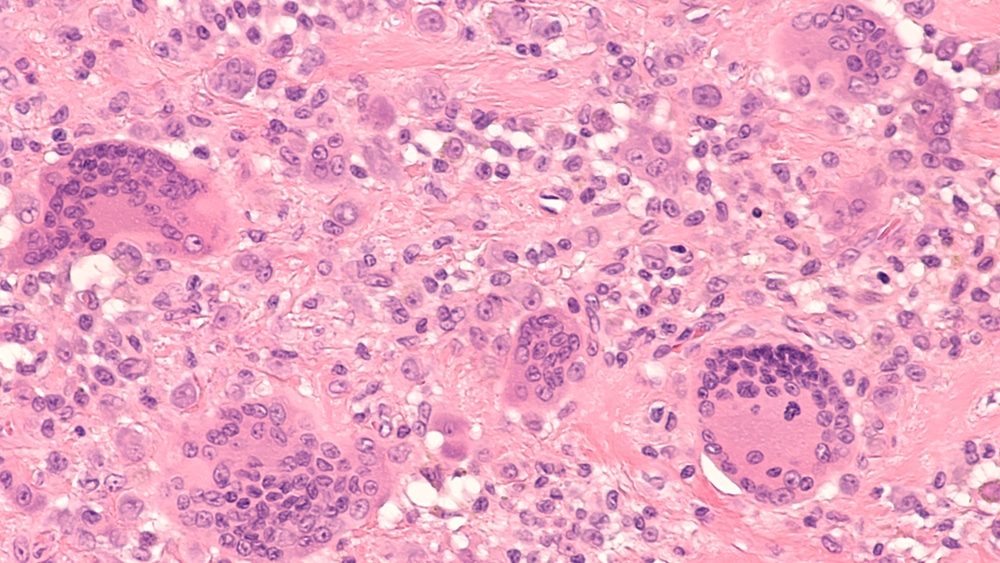SynOx Therapeutics Limited says its novel monoclonal antibody, emactuzumab, in development for the treatment of tenosynovial giant cell tumor (TGCT) and other diseases, has been designated as an orphan medicinal product for both localized and diffuse types of the disease by the European Medicines Agency (EMA).
No systemic treatments have been approved for TGCT in the EU.
About TGCT
TGCT, previously termed pigmented villonodular synovitis, is a type of tumor that affects the soft tissue lining of joints and tendons.
TGCTs are categorized as fibrohistiocytic tumors by the WHO classification and are subclassified based on growth patterns (localized- and diffuse types) and location (tendon sheath, and intra- and extra-articular forms). TGCTs are locally destructive and aggressive tumors.
TGCT is a rare disease, with an incidence of 39 per million persons for localized TGCT and 4 per million persons for diffuse TGCT. While TGCT is not in itself a life-threatening disease, it does result in important functional impairments, significant joint damage, and decline in quality of life, which carries a high healthcare burden and loss of work productivity.
TGCT is clinically characterized by pain, swelling, and range of movement limitations with significant impact on quality of life as a result. It is predominantly a mono-articular disease, typically affecting the lower limbs (knee, hip, ankle), although shoulder, elbow and smaller joints may also be altered. Unique instances of poly-articular disease have been documented.
Symptoms typically progress slowly but can be aggressive and destructive. If left untreated complications include moderate to severe joint deformity, degenerative articular changes, and osteoarthritis, which if severe enough, have led to cortical bone destruction and occasionally the need for arthrodesis or amputation.
Most patients receive surgical intervention, with a post-surgery recurrence rate of up to 50%.
Phase III trial
Emactuzumab is a novel monoclonal antibody inhibiting CSF-1R, which offers a short course of treatment. Phase I/II studies indicated good tolerability and a manageable safety profile and substantial preliminary efficacy in TGCT patients with rapid, robust tumor reduction and durable response.
The Irish late-stage clinical biopharma company said it is planning a phase III trial (TANGENT) to assess the efficacy and safety of emactuzumab in patients with localized or diffuse TGCT where surgical removal of the tumor is not viewed as an option.
Ray Barlow, chief executive officer of SynOx, said: “We have made significant progress in the development of emactuzamab in TGCT in the last 12 months. The positive opinion regarding the orphan drug designation marks an important step in SynOx’s continuing journey to provide a potential therapeutic option for patients with this debilitating disease. We are now recruiting patients on to our phase III registrational trial (TANGENT) and look forward to providing an update on progress in the near future.”
SynOx Therapeutics is backed by a syndicate of life science investors including HealthCap, Medicxi, Forbion and Gimv. Other shareholders include Celleron Therapeutics and Roche Ventures.
About CSF-1 and Emactuzumab
CSF-1 (or macrophage colony-stimulating factor) is a cytokine that binds to the CSF-1 receptor (CSF-1R), expressed on macrophages and certain other cells, with effects on production, differentiation, and function of these cells.
Emactuzumab is a humanized IgG1 CSF-1R targeted antibody that inhibits and depletes macrophages in the tumor tissue. Emactuzumab was originally discovered and developed by Roche and has been tested in several phase 1/b studies as a monotherapy and in combination with other agents, including chemotherapeutics and immunotherapies.
In clinical studies as a monotherapy in 63 patients with TGCT, emactuzumab has shown a substantial effect on tumor response and was well tolerated.
Emactuzumab may also have utility in other macrophage driven diseases and the company is actively considering potential options in these areas.





